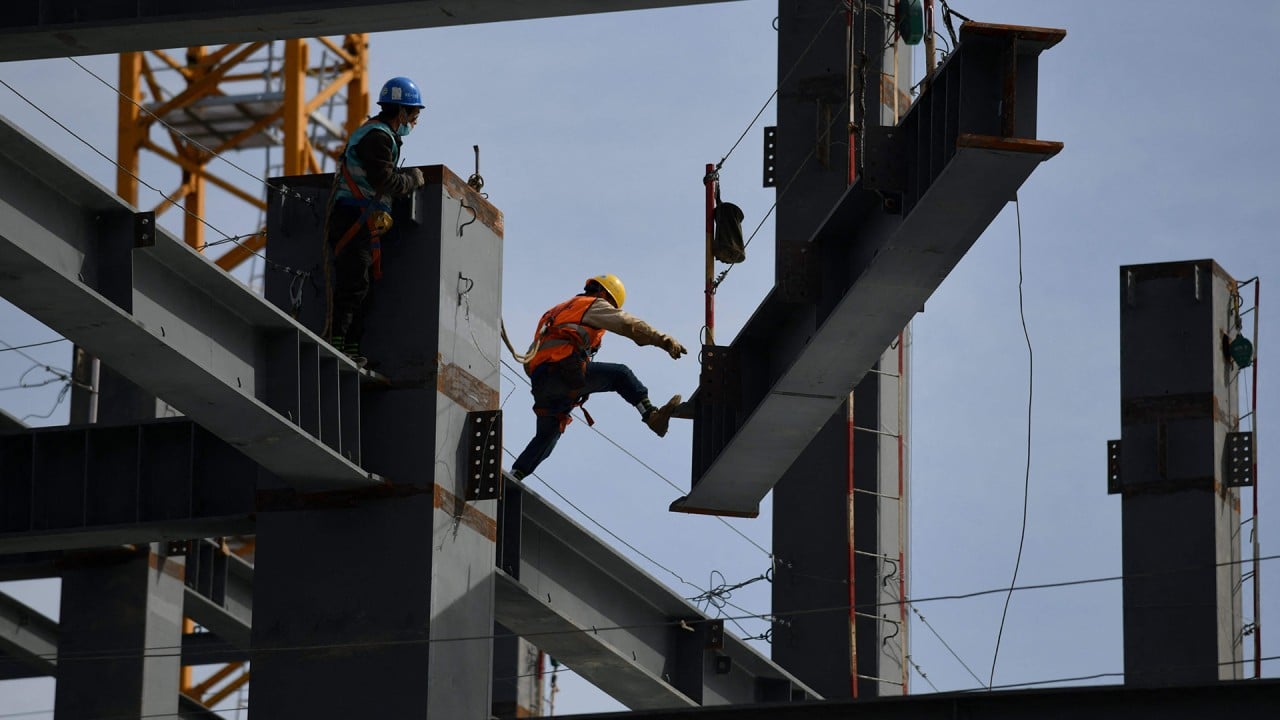
China’s steel prices spike on record raw material costs, raising inflation fears
- Nearly 100 Chinese steelmakers adjusted their prices upwards on Monday amid record costs for raw materials like iron ore
- Although the effect on overall inflation is not yet clear, the spike in steel prices could threaten a range of downstream industries
The decision by Chinese steel mills to fire up prices amid soaring raw material costs has raised concern about inflation risks in the world’s second largest economy and the impact this may have on smaller manufacturers who cannot pass on higher costs.
That prompted nearly 100 steelmakers, including leading producers such as Hebei Iron & Steel Group and Shandong Iron & Steel Group, to adjust their prices on Monday, according to information posted on industry website Mysteel.
Baosteel, the listed unit of China’s largest steelmaker Baowu Steel Group, said it would raise its June delivery product by up to 1,000 yuan (US$155), or more than 10 per cent.

02:01
China’s economy expands record 18.3 per cent in the first quarter of 2021
Steel prices have been climbing since February. Prices rose 6.3 per cent in April after gains of 6.9 per cent in March and 7.6 per cent the previous month, according to the South China Morning Post’s calculations based on China’s domestic steel price index, which is published by the Steel Home consultancy.
As of last Friday, steel prices were up 29 per cent for the year to date.
A survey of the China Iron & Steel Association, a semi-official industry body representing most producers, found that reinforcing bar used in construction soared 10 per cent to 5,494 yuan per tonne last week, while cold-rolled sheet steel, mainly used for cars and home appliances, rose 4.6 per cent to 6,418 yuan per tonne.
China’s reliance on Australia has worried some steelmakers, but analysts from Zhongtai Securities said the suspension would not have much of an impact on steel, despite market fears of supply disruptions.
The brokerage attributed the steel price hikes more to government efforts to scale back capacity.
China-Australia tensions ratchet up unease in Beijing about surging iron ore prices
But analysts Guo Hao and Cao Yun warned China should not reduce its iron ore imports from Australia because it will “drive up prices significantly”.
“Other long-term measures may be used, such as accelerating mining in other countries, to reduce its reliance,” they said in a note.
Worries over imported inflation have been raised at the highest level of China’s government, including in an early April meeting of the Financial Stability and Development Commission headed by vice-premier Liu He. Authorities vowed to “maintain basic stability of prices” and “pay special attention” to the trends in commodities prices.

